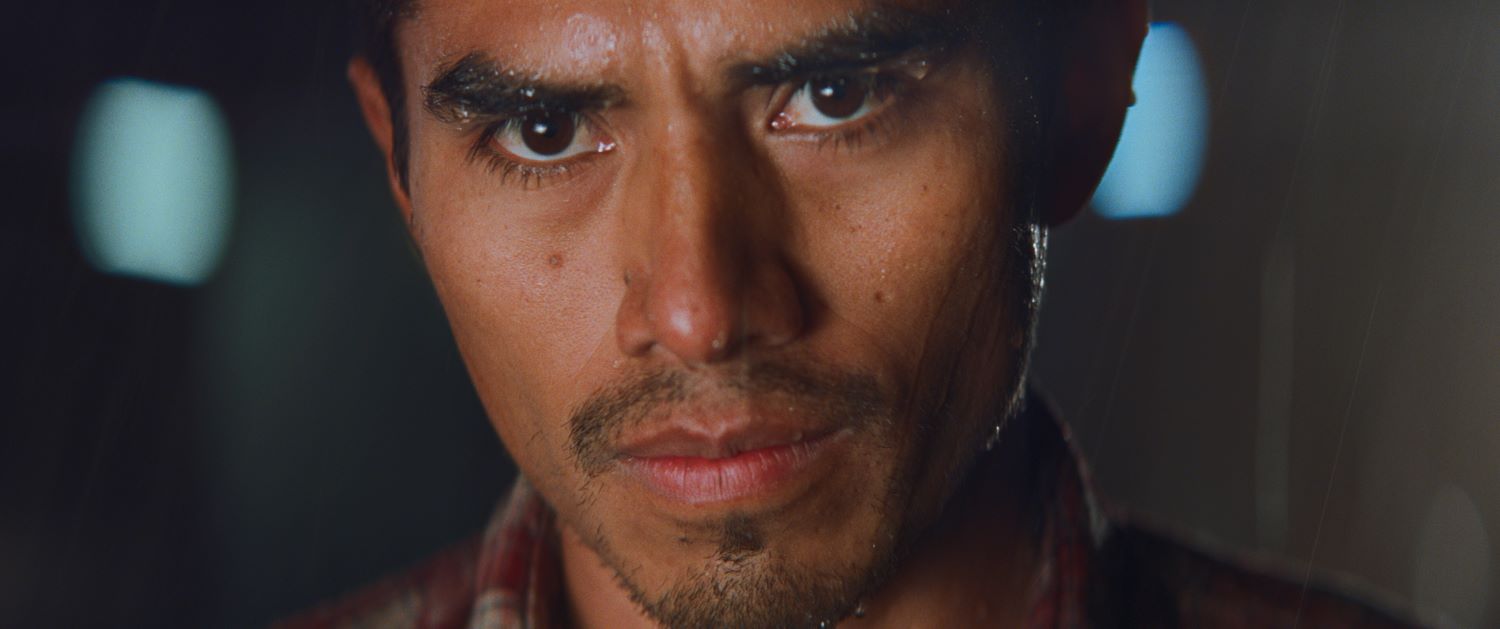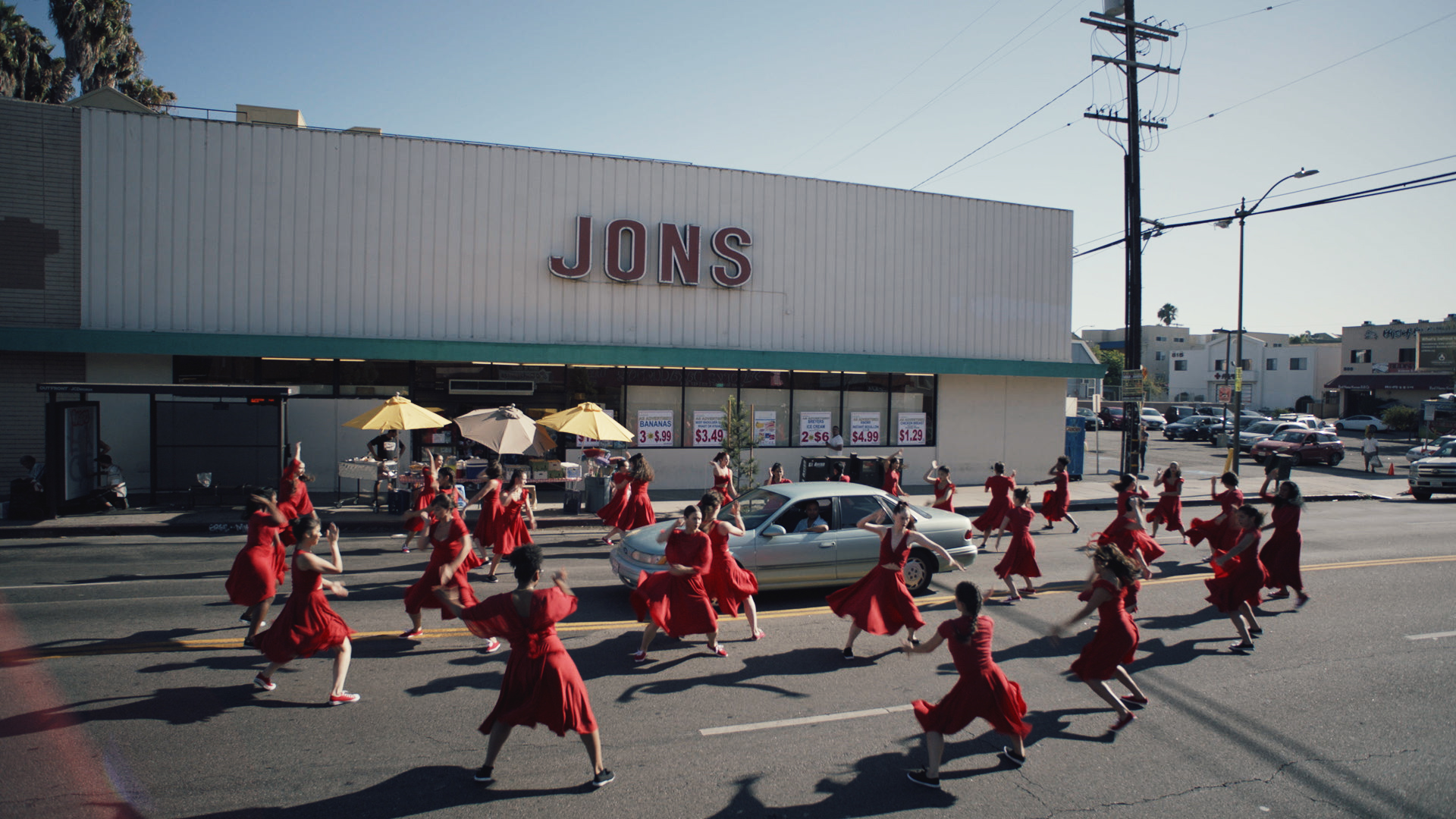Drunken Birds (Les oiseaux ivres) will represent Canada in this year’s Oscar race for Best International Feature. Directed by Ivan Grbovic and co-written and shot by Sara Mishara, Drunken Birds is an intense drama about a young Mexican man named Willy whose flight from the drug cartel and quest to be reunited with his lover bring him to a farm in Quebec. Once there, he joins the cadre of temporary migrant workers and enters the lives of the Quebecois family transformed by his presence.
Drunken Birds is Grbovic’s second feature as a director after the acclaimed Roméo Onze. The film is a co-production between Canada and Mexico with Roma star Jorge Antonio Guerrero in the lead as Willy. The film co-stars Hélènt Florent (Maria Chapdelaine) and Claude Legault (10½). Drunken Birds is produced by Luc Déry and Kim McCraw of micro_scope and Mexican producer Nicholás Celis, whose Roma won the category for 2018 and earned Alfonso Cuarón additional Oscars for Best Director and Best Cinematography.
Drunken Birds recently had its world premiere at the competitive Platform line-up at the Toronto International Film Festival. It will open in theatres on October 15 following screenings at the Vancouver International Film Festival and the Montreal Festival du Nouveau Cinéma. Drunken Birds was selected from the pool of ten films that submitted to the pan-Canadian committee chaired by Telefilm Canada. (Telefilm does not have a vote in the proceedings, but supports the nominee’s campaign.)
“I love hearing such emotional reactions,” said Christa Dickenson, Executive Director and CEO, Telefilm Canada, after breaking the news to the Drunken Birds team. Dickenson also expressed confidence in the filmmakers and particularly the producing team of McCraw and Déry, noting that the selection makes it the fifth Oscar competitor from their filmography, which includes consecutive Oscar nominations for Incendies (2010) and Monsieur Lazhar (2011). Déry and McCraw also produced the 2013 submission Gabrielle, directed by Louise Archambault, while Déry produced the 2002 submission Un crabe dans la tête, directed by André Turpin. “The theatrical release of a film marks it as an event,” added Dickenson. “This year, we will all need to get behind Drunken Birds to take it to the top.”
The Drunken Birds team emphasized during the virtual press conference the important of seeing the film in a theatre. “It’s an honour. I hope it will get more people to see the film and broaden distribution,” said Grbovic. “There’s something that happens in a movie theatre—it’s the interactions with other people.” Canadian theatres are only beginning to open up following a prolonged closure and reduced capacity. Drunken Birds premiered at TIFF’s hybrid festival where in-theatre attendance was good on the public side, but mixed on the industry side. (I was among the dozen or so people at the film’s theatrical P&I.)
“The industry is in the process of recovering from the pandemic,” admitted Déry. The producer noted that the response from international buyers has been good, but that it remains a difficult time for distribution. “Foreign distributors have a lot of films on the shelves. Fewer deals were made at the festival [TIFF].” Drunken Birds is still seeking U.S. distribution, but Oscar contenders usually find traction once submissions are announced.
“We made this film for a big screen and for an audience,” added Mishara. “Maybe [the submission] will encourage more people to get out to the theatre and question the subject matter that can reach audiences beyond Quebec.”
The selection follows the recent trend in which Canadian submissions with an international hook generally perform better. Several Canadian nominees in the category—Water (2006), Incendies, Monsieur Lazhar, and War Witch (2012)—all featured stories set entirely or in part outside of Canada, while Monsieur Lazhar was a tale of an immigrant teacher’s new life in Quebec. The other nominees, Jésus of Montreal (1989) and The Decline of the American Empire (1986) were directed by Denys Arcand, with the only winner, Arcand’s The Barbarian Invasions (2003), generally received as an outward-looking follow-up to the latter.
The team emphasized the outward looking nature of Drunken Birds as a window through which audiences both Canadian and international can access the story. Mishara noted that it’s a love story that takes place on a migrant farm, but ultimately a reflection of socio-economic dynamics. “Our desire was not to make a traditional documentary-style film about foreign workers,” she explained. “Migrant work is not the subject but the context.”
Grbovic added that the screenplay drew upon their surprise of seeing migrant workers in fields just a short drive outside Montreal. He emphasized that Willy’s story and that of the family drew upon the theme of encounters and what happens when two worlds meet. “There’s not only a factual reaction, but also an emotional, visceral one.”
Canada has never submitted a documentary in the Best International Feature race. (Admittedly, this year had few viable doc contenders.) Docs have enjoyed a recent breakthrough in the category with North Macedonia’s Honeyland and Romania’s Collective both scoring nominations in the international race in addition to the doc category.












